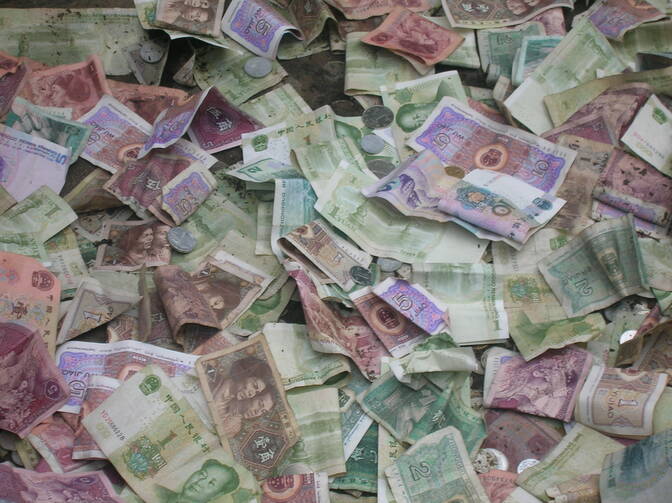The recent meltdown and the suspension of trading in the Chinese equities market has received much attention in the international financial press. One reason why there is such interest is the potential for negative financial “contagion” effects throughout the region or the world as a whole. This essay asks three questions: why now and does it matter? If so, for the region or the world as a whole?
Why Now?
The share price of an industry reflects the present discounted value of current and expected future earnings. Precisely because market participants in the share market have different expectations about future earnings, trade takes place. Some participants sell shares because they believe that the market price is high relative to the discounted value of current and expected future earnings, while others buy, since they believe that the market price is lower than the discounted value of current and expected future earnings.
The key to understanding volatility in share market is expectations formation by market participants. If there is transparency in reporting of profits by firms, and public policy guided by clear rules, expectations should be stable and share-market volatility minimal. However, in China many prices are administered, subject to quick and unexpected changes decreed by the government. For example, there is one price of energy for foreign firms, another for domestically owned firms, another price for domestic households and still another for foreign households. Since these prices critically affect the expected future earnings of firms, naturally expectations of sudden changes in these prices would show up in share-market swings.
Besides the price of energy, the other major administered price in China is the exchange rate. The value of the RMBI or yuan, directly affects the future earnings of Chinese firms. How so? On the one hand, a lower value of the RMB makes Chinese products more competitive on world markets and thus would increase the earnings of such export-oriented firms in China. On the other hand, a fall in the value of the RMB makes the costs of imported intermediate or raw materials goods more expensive and would thus decrease the expected future earnings of firms, which use imported inputs in their production, but serve the local rather than the export market.
The volatility and fall in the market this past week was triggered by expectations of further RMB depreciation by the People’s Bank of China (PBC). Since most of the shares listed in the Chinese stock market are for local firms serving domestic markets, it is not surprising the expectations of further deprecation of the RMB would trigger expectations of falling future earnings in these firms.
Does It Matter?
As we saw last week, the share market stopped trading when the market index plunged below critical levels. Since foreign participation in this market is severely restricted, there is little fear of any direct transmission of financial loss to parties outside of China. However, there are other ways that a negative signal from the Chinese share market, as we recently experienced, can affect financial markets beyond Chinese boarders. In the Asia-Pacific region, many countries other than China are highly dependent on external credit from developed country financial markets.
When bad news comes in from one country in the region, international creditors often become extremely bearish (by cutting off credit flows) for the entire region, even if the bad news is specific to only one country. The reason is that foreign creditors often gloss over country-specific information and rank individual countries for credit purposes by regional characteristics, due to the costs of collecting and evaluating information from countries where data is not as widespread and transparent as in more financially developed markets. Thus the negative news from China can reduce or even reverse credit flows difficult for its Pacific-Basin neighbors.
What has happened, of course, can happen again. In July 1997, the devaluation and floating of the Thai Baht brought fast and furious financial contagion effects to the entire region.
For Whom Does It Matter?
Even though we live in a globalized world, we are people of space and time. While the world is financially globalized, there is increasing “real” regionalization, in that economic upturns and downturns are increasing regionally correlated. With the interest rates on target to increase over the next year, savvy creditors may decide it is now time to park their credit in relatively safe U.S. instruments. We live in world where expectations are not completely rational and where information is neither compete nor transparent.
Paul D. McNelis, S.J., America’s contributing editor for economics, holds the Robert Bendheim Chair in Economic and Financial Policy at the Graduate School of Business Administration at Fordham University, New York.








